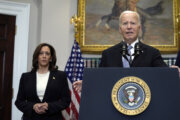A mid-April survey from U.S. News & World Report focused on individuals who say they worry about their finances. Among them, nearly half of respondents report experiencing significant financial anxiety. And an additional 34.3% say they feel at least a moderate amount of financial anxiety.
Survey findings:
— Nearly 29% say high prices are the primary cause of their financial anxiety.
— Almost 59% report that they don’t have an emergency fund.
— Only 9.3% say they feel very confident in their financial decisions.
— Almost 77% believe their financial anxiety will stay the same or increase over the next year.
What Is Financial Anxiety?
If you have financial anxiety, you’re worried or at least uneasy about your financial situation. These feelings can range from a mild case of anxiety to near obsession about the lack of money.
Financial anxiety can be caused by a variety of issues, such as the inability to meet your expenses, job loss, lack of a savings account, carrying credit card debt, having a high mortgage payment or worrying about supporting yourself in retirement.
A similar type of anxiety is called money dysmorphia. This is a situation where someone may feel they have no money when they actually have quite a bit. On the other hand, the basis for financial anxiety is often rooted in reality.
[Read: Best Low-Interest Credit Cards.]
What’s the Primary Reason for Financial Anxiety?
In the survey, respondents identify the following as the main cause of their anxiety:
— Inflation/high prices: 28.5%.
— Living paycheck to paycheck: 18.1%
— State of the economy in general: 16.6%.
— Housing costs: 8.6%.
— Unstable employment: 8.5%.
— My credit card debt: 8.5%.
— My overall level of debt: 8.2%.
— Other: 3%.
It’s not surprising that high prices have created anxiety for many. Even if you’re sticking to a budget, it can be difficult to cover the cost of some everyday expenses without getting a little creative.
Strategies Used for Covering Expenses
Survey respondents were asked how they handle paying for things they can’t afford. Here are the findings:
— Get help from family or friends: 30.5%.
— Use a credit card and carry a balance: 23.7%.
— Get government assistance: 20.6%.
— Take out a loan: 14%.
— Other: 11.2%.
Almost 24% are using a credit card to cover excess costs. The problem with using a credit card and carrying a balance is that you pay compound interest. This can make your debt increase fairly quickly. When asked about financial mistakes, 54.1% say they’ve carried a balance on a credit card, and 18.6% have spent more than 12 months trying to pay it off.
It’s interesting that 30.5% are getting help from family or from friends. If you take this route, be clear whether it’s a gift or a loan. If it’s a loan, put the terms in writing. A proper agreement will help deter misunderstandings and also protect the relationship.
[Read: Best 0% APR Credit Cards.]
What to Do About Your Financial Anxiety
The stress of financial anxiety can lead to emotional purchases. In the survey, 41.7% say they make impulsive purchases when they know they have the cash. And 26.1% say they engage in retail therapy.
The remedy for your anxiety will depend on your specific situation, but here are a few steps so you can take the chaotic feeling down a few notches.
Improve Your Credit Score
This might sound irrelevant when you’re living on the edge financially, but think about this: If you have at least a 760 FICO score, you’ll qualify for the lowest rates if you need to borrow money.
Just knowing that you have options to get a credit card or a personal loan in a money crisis can help ease your fears. If you can’t pay down credit card debt, focus on paying your bills on time and chip away at the debt. Having a credit utilization ratio of more than 30% damages your score. Payment history and credit utilization make up 65% of your credit score.
Another strategy is to increase the credit limit on a current credit card. This results in a lower utilization ratio, and it can boost your score. Just don’t use the extra credit limit for purchases.
Use Credit Cards to Your Advantage
I’m not talking about using just any type of credit card to cover monthly expenses. If there’s a big purchase you can’t put off, like a new refrigerator, use a 0% purchase annual percentage rate credit card.
These credit cards offer a 0% APR for a period of time, usually from 12 to 21 months. This gives you the opportunity to pay down the debt without paying any interest.
What if you still have a balance when the introductory period ends? If you have a good credit score, you can transfer the debt to a 0% APR balance transfer credit card. You’ll then have another 12-to-21-month introductory period to pay it off before the regular rate kicks in.
Increase Your Income
The survey also asked respondents about their annual household income. Nearly 68% report their household income is less than $75,000 a year.
Yes, I know you can’t snap your fingers and add $20,000 a year to your cash flow. But here are some ideas for getting your hands on more cash. Keep in mind that some of these suggestions can be employed at the same time.
— Get a side hustle: If you already have a lack of time, this might not work for you. But if you do have extra time, a side hustle is a good way to boost your income. And think about earning extra money during the holiday season, when many employers are looking for temporary help.
— Ask for a raise: This strategy depends on a few things, such as whether or not you’re underpaid or it’s been a while since your last salary increase.
— Get a new job: If you’re lucky enough to have skills that are in demand and your current employer doesn’t recognize your value, start looking around.
— Revamp your budget: If you haven’t already done this, do it now. Cut back on unnecessary expenses. This won’t be forever. You need to boost your cash flow now, so cut wherever you can. That gives you a little more money for your everyday and household expenses.
[Read: Best Balance Transfer Cards]
Build Your Emergency Fund
Another reason for financial anxiety among respondents could be the lack of an emergency fund. Nearly 59% don’t have an emergency fund. Of those who do, 36.9% say it’s less than $5,000. And 14% have $1,000 or less.
The impact of having an emergency fund is similar to having a good credit score. When you feel as if you’re walking on a high wire, it’s comforting to know you have a financial net to catch you if you need it.
More from U.S. News
How to Lower Your Credit Card Interest Rate
Personal Loan vs. Credit Card: Which Is Best For You?
49% of Those With Financial Anxiety Say It’s Significant originally appeared on usnews.com







